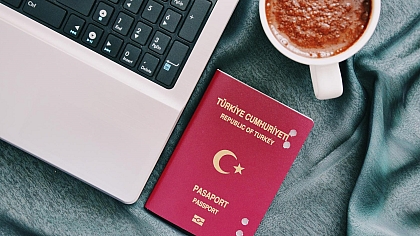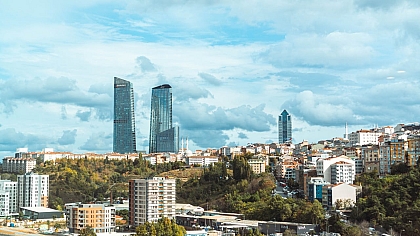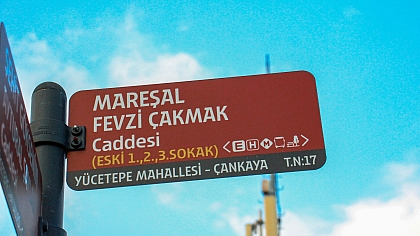
Essential Basic Turkish Phrases: Unlocking the Language of Türkiye
Türkiye, with its rich tapestry of history, culture, and stunning landscapes, is a mesmerizing destination for travellers. While many Turks speak English, especially in major cities, learning some basic Turkish phrases can greatly enhance your travel experience. Not only will it help you navigate daily interactions more smoothly, but it will also endear you to the locals, who appreciate visitors making an effort to speak their language.
We will equip you with essential Turkish phrases, along with tips on pronunciation and cultural context.
Introduction to the Turkish Language
The Significance of Learning Turkish
Turkish is a member of the Turkic language family and is spoken by over 80 million people worldwide. Learning even a few basic phrases can:
- Enhance your travel experience by making interactions with locals easier and more enjoyable.
- Show respect for the local culture and customs.
- Help you navigate through cities, markets, and tourist attractions with greater ease.
Pronunciation Basics
Turkish pronunciation is relatively straightforward, with each letter typically having one sound. Here are a few tips:
- Vowels: Turkish vowels are pronounced distinctly. There are both short and long versions.
- Consonants: Most Turkish consonants are pronounced similarly to their English counterparts.
- Stress: The stress in Turkish words usually falls on the last syllable.
Let's begin with some essential phrases to get you started.
Greetings and Common Courtesies
Basic Greetings
- Hello: Merhaba (mehr-hah-bah)
- Good morning: Günaydın (goo-nahy-duhn)
- Good evening: İyi akşamlar (ee ahk-shahm-lahr)
- Good night: İyi geceler (ee geh-jeh-lehr)
- Goodbye: Hoşça kal (hosh-chah kahl) [to someone staying] / Güle Güle (goo-leh goo-leh) [to someone leaving]
Polite Expressions
-
Please: Lütfen (loot-fehn)
-
Thank you: Teşekkür ederim (teh-shehk-kyoor eh-deh-reem)
-
You're welcome: Rica ederim (ree-jah eh-deh-reem)
-
Excuse me: Affedersiniz (ah-feh-dehr-see-neez)
-
Yes: Evet (eh-veht)
-
No: Hayır (hah-yer)
-
Okay: Tamam (tah-mahm)
-
Sorry: Özür dilerim (oh-zur dee-leh-reem)
Useful Phrases for Travellers
Asking for Directions
-
Where is...?: ...nerede? (neh-reh-deh)
Example: Where is the restroom? Tuvalet nerede? (too-vah-leht neh-reh-deh) -
How do I get to...?: ...nasıl giderim? (nah-suhl gee-deh-reem)
Example: How do I get to the airport? Havaalanına nasıl giderim? (hah-vah-ah-lah-nuh-nah nah-suhl gee-deh-reem) -
Left: Sol (sohl)
-
Right: Sağ (sah)
-
Straight ahead: Dümdüz (doom-dooz)
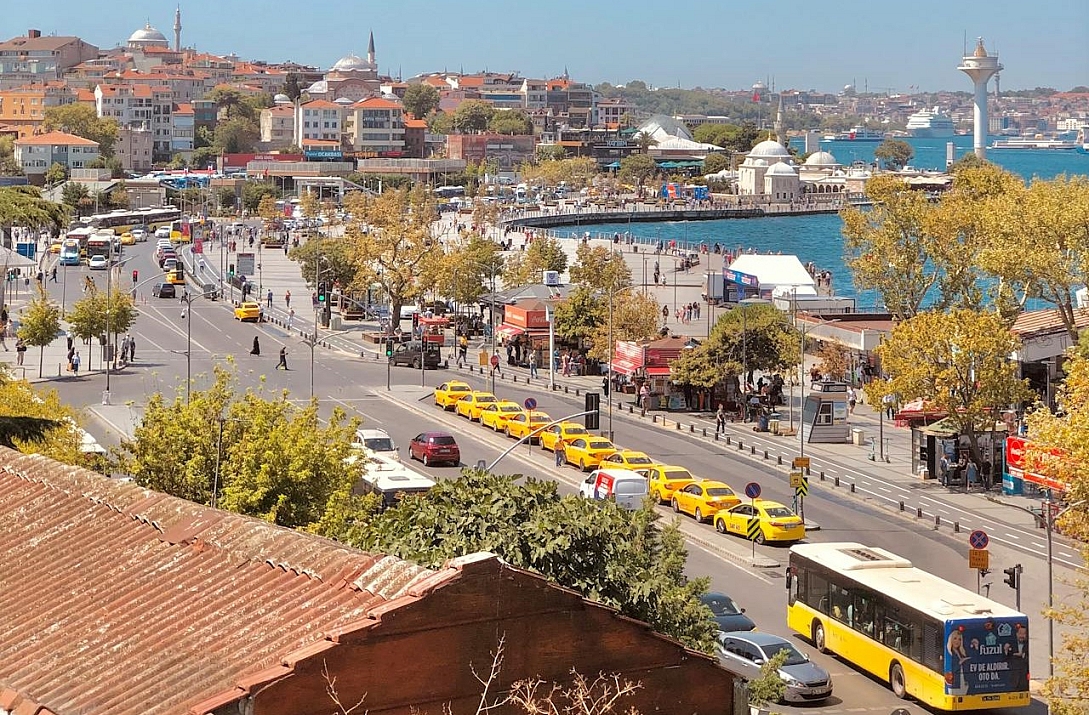
Transportation
-
Bus: Otobüs (oh-toh-boos)
-
Taxi: Taksi (tahk-see)
-
Train: Tren (trehn)
-
Airport: Havaalanı (hah-vah-ah-lah-nuh)
-
Ticket: Bilet (bee-leht)
Shopping, Bargaining and Dining
- How much is this?: Bu ne kadar? (boo neh kah-dahr)
-
I would like to buy this: Bunu satın almak istiyorum (boo-noo sah-tuhn ahl-mahk ees-tee-yor-uhm)
-
Can I have the bill, please?: Hesabı alabilir miyim, lütfen? (heh-sah-buh ah-lah-beel-eer mee-yeem, loot-fehn)
-
Delicious: Lezzetli (leh-zeht-lee)
-
Water: Su (soo)
-
Menu: Menü (meh-nyoo)
-
Can you give me a discount?: İndirim yapabilir misiniz? (een-dee-reem yah-pah-bee-leer mee-see-neez)
-
I am just looking, thank you.: Sadece bakıyorum, teşekkür ederim. (sah-deh-je bah-koo-yor-oom, teh-shehk-kyoor eh-deh-reem)
-
Do you accept credit cards?: Kredi kartı kabul ediyor musunuz? (kreh-dee kahr-tuh kah-bool eh-dee-yor moo-soo-nooz)
-
Can I see the menu?: Menüyü görebilir miyim? (meh-nyoo-yoo goh-reh-beel-eer mee-yeem)
-
Do you have vegetarian options?: Vejetaryen yemekler var mı? (veh-jeh-tar-yen yeh-mek-lehr vahr muh)
-
Can I have some water, please?: Biraz su alabilir miyim, lütfen? (beer-ahz soo ah-lah-beel-eer mee-yeem, loot-fehn)
-
I am allergic to...: ...'ya alerjim var (...'yah ah-lehr-jeem vahr)
Example: I am allergic to nuts: Kuruyemişe alerjim var (koo-roo-yeh-meesh-eh ah-lehr-jeem vahr)
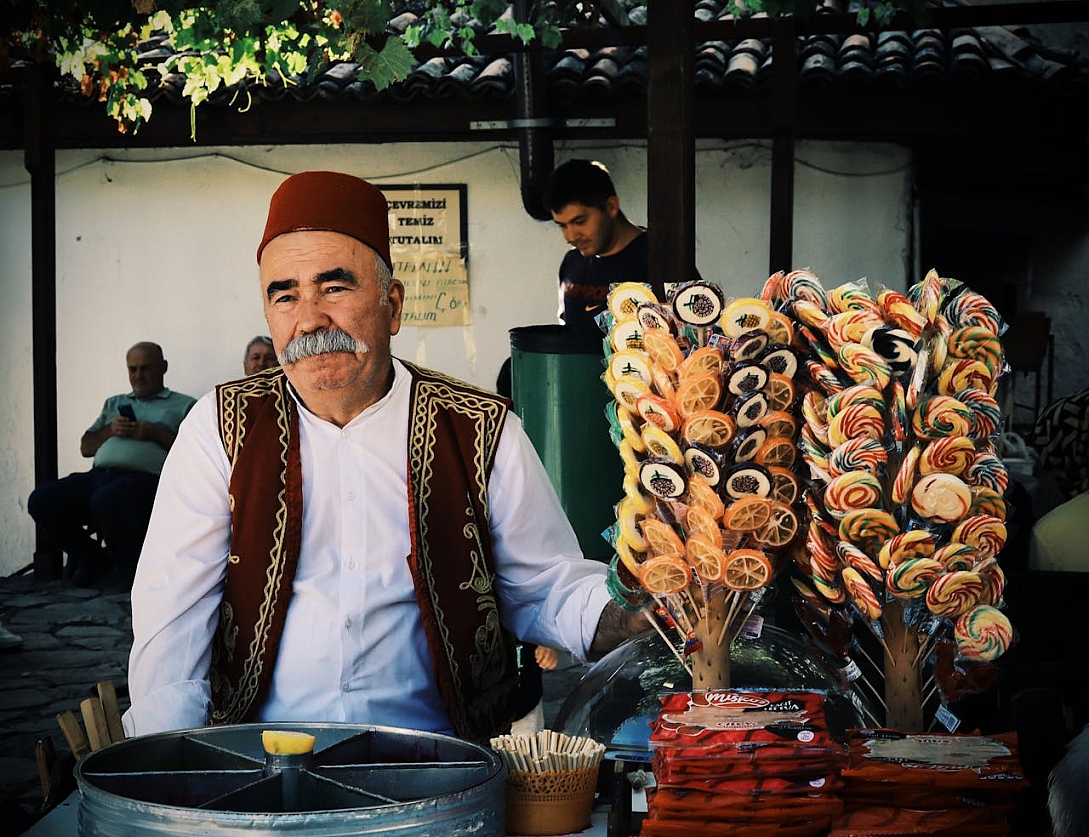
At the Market
-
an I taste it?: Tadını bakabilir miyim? (tah-duh bah-kah-beel-eer mee-yeem)
-
How fresh is this?: Bu ne kadar taze? (boo neh kah-dahr tah-zeh)
-
I would like 1 kilo of this.: Bundan 1 kilo istiyorum. (boon-dahn beer kee-loh ees-tee-yor-um)
-
Please wrap it up.: Lütfen paket yapın. (loot-fehn pah-keht yah-puhn)
Emergency Phrases
Seeking Help In Case of Emergency
-
Help!: Yardım edin! (yahr-duhm eh-deen)
-
Call the police!: Polisi arayın! (poh-lee-see ah-rah-yuhn)
-
I need a doctor: Bir doktora ihtiyacım var (beer dok-toh-rah eeh-tee-ah-juhm vahr)
-
I'm lost: Kayboldum (kahy-bohl-doom)
-
My phone is missing: Telefonum kayboldu (teh-leh-foh-noom kahy-bohl-doo)
-
I need help!: Yardım lazım! (yahr-duhm lah-zim)
-
Can you call an ambulance?: Ambulans çağırabilir misiniz? (ahm-boo-lahns chah-uh-rah-bee-leer mee-see-neez)
-
There has been an accident.: Bir kaza oldu. (beer kah-zah ohl-doo)
Conversational Phrases
Making Small Talk
-
-
How are you?: Nasılsınız? (nah-suhl-suh-nuhz)
-
I'm fine, thank you: İyiyim, teşekkür ederim (ee-yeem, teh-shehk-kyoor eh-deh-reem)
-
What's your name?: Adınız ne? (ah-duhn-uhz neh)
-
My name is...: Benim adım... (beh-neem ah-duhm)
-
Where are you from?: Nerelisiniz? (neh-reh-lee-see-neez)
-
I'm from...: Ben ...'dan geliyorum (ben ...'dahn geh-lee-yor-uhm)
-
Essential Vocabulary
Numbers
-
One: Bir (beer)
-
Two: İki (ee-kee)
-
Three: Üç (ooch)
-
Four: Dört (dert)
-
Five: Beş (besh)
-
Six: Altı (ahl-tuh)
-
Seven: Yedi (yeh-dee)
-
Eight: Sekiz (seh-keez)
-
Nine: Dokuz (doh-kooz)
-
Ten: On (ohn)
Days of the Week
-
Monday: Pazartesi (pah-zahr-teh-see)
-
Tuesday: Salı (sah-luh)
-
Wednesday: Çarşamba (char-shahm-bah)
-
Thursday: Perşembe (pehr-shehm-beh)
-
Friday: Cuma (joo-mah)
-
Saturday: Cumartesi (joo-mar-teh-see)
-
Sunday: Pazar (pah-zahr)
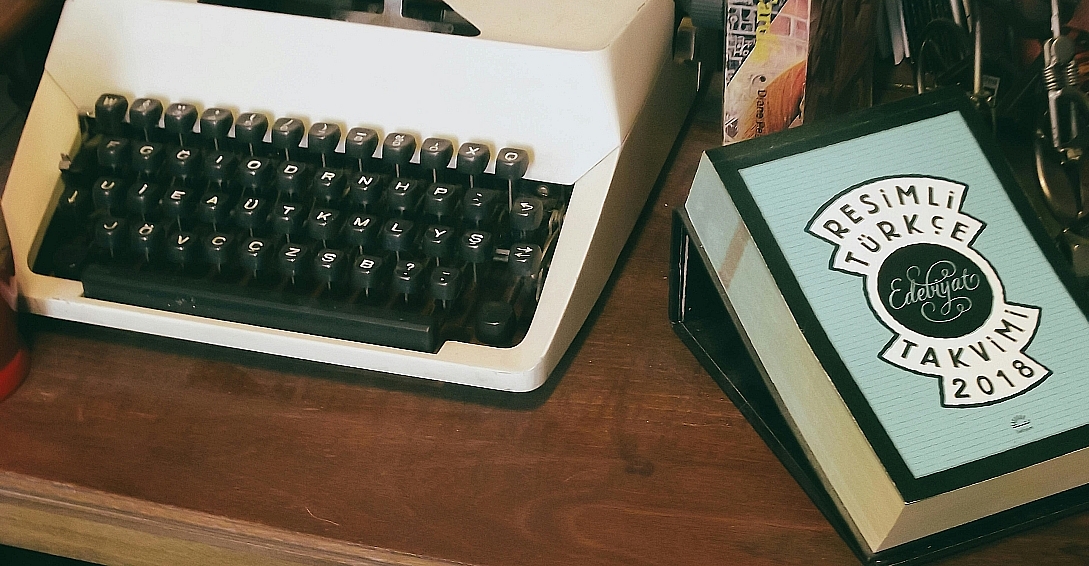
Months of the year
-
January: Ocak (oh-jahk)
-
February: Şubat (shoo-baht)
-
March: Mart (mahrt)
-
April: Nisan (nee-sahn)
-
May: Mayıs (mah-yuhs)
-
June: Haziran (hah-zee-rahn)
-
July: Temmuz (tehm-mooz)
-
August: Ağustos (ah-oos-tohs)
-
September: Eylül (ey-lul)
-
October: Ekim (eh-keem)
-
November: Kasım (kah-suhm)
-
December: Aralık (ah-rah-luhk)
Learning these will help you with making plans, scheduling activities, and understanding dates during your travels in Türkiye.
Common Objects
- Hotel: Otel (oh-tehl)
- Room: Oda (oh-dah)
- Food: Yiyecek (yee-yeh-jehk)
- Money: Para (pah-rah)
- Passport: Pasaport (pah-sah-pohrt)
Cultural Tips
Etiquette and Customs
Understanding cultural nuances is as important as knowing the language. Here are some tips to help you navigate Turkish customs:
- Hospitality: Turks are known for their hospitality. Accepting tea or coffee when offered is considered polite.
- Greetings: A firm handshake and direct eye contact are customary when meeting someone of the same gender.
- Dress Code: Modest dress is appreciated, especially in rural areas and when visiting religious sites.
- Respect: Showing respect for elders is an important aspect of Turkish culture.
More Tips for Language Practice

Watching Turkish Media
- TV Shows and Movies: Watching Turkish TV shows and movies with subtitles can help improve your listening skills and familiarity with everyday phrases.
-
Traditional Turkish Music and Dance: Listening to Turkish music and reading the lyrics can help you learn new vocabulary and pronunciation.
- Music: Türkiye boasts a rich musical heritage, including classical Ottoman music, folk songs, and modern genres like Turkish pop and rock.
- Dance: The folk dances of Türkiye, such as the energetic "Halay" and the graceful "Horon," reflect the country's diverse cultural influences.
Dining Etiquette
- Sharing Meals: Meals are often communal. Be prepared to share dishes and try a bit of everything.
- Compliments: Compliments to the host on the food are appreciated.
- Dining Out: Tipping is customary in restaurants, usually around 10-15%.
Practice Makes Perfect
Engaging with Locals
Practising your Turkish with locals can significantly improve your language skills and enrich your travel experience. Here are a few tips:
- Be Patient: Language learning takes time. Don’t be afraid to make mistakes.
- Use Technology: Language learning apps and online resources can supplement your practice.
- Join Language Exchange Groups: These groups offer opportunities to practice Turkish with native speakers in exchange for teaching them your language. Many cities have language exchange groups or cultural meetups where you can practice Turkish.
- Practice in Cafes and Shops: Ordering in Turkish and having small conversations with staff in shops, cafes and restaurants is great practice.
Learning basic Turkish phrases can greatly enhance your travel experience in Türkiye, allowing you to connect more deeply with the local culture and navigate daily interactions with ease. From greetings and common courtesies to practical phrases for shopping, dining, and emergencies, this guide equips you with the essential language skills needed for a memorable and enriching visit to Türkiye.

Advanced Turkish Phrases for Travellers
Expressing Preferences and Needs
-
I like...: ...seviyorum (...seh-vee-yor-um)
-
Example: I like Turkish food → Türk yemeklerini seviyorum (turk yeh-mek-leh-ree-nee seh-vee-yor-um)
-
-
I don't like...: ...sevmiyorum (...sehv-mee-yor-um)
-
Example: I don't like spicy food → Acı yemekleri sevmiyorum (ah-juh yeh-mek-leh-ree sehv-mee-yor-um)
-
-
I want...: ...istemiyorum (...ees-teh-mee-yor-um)
-
Example: I want to go to the beach → Plaja gitmek istiyorum (plah-jah geet-mehk ees-tee-yor-um)
-
-
I need...: ...ihtiyacım var (...ee-tee-yah-jah-juhm vahr)
-
Example: I need a taxi → Bir taksiye ihtiyacım var (beer tahk-see-yeh eet-tee-yah-jah-juhm vahr)
-
Cultural Insights and Proverbs
Proverbs and Sayings
-
"Dost acı söyler."
-
Translation: A friend tells the bitter truth.
-
Meaning: True friends give honest feedback, even if it's hard to hear.
-
-
"Bir elin nesi var, iki elin sesi var."
-
Translation: One hand may not be enough, but two hands make a sound.
-
Meaning: Cooperation achieves more than individual effort.
-
-
"Atın ölümü arpadan olsun."
-
Translation: Let the horse's death come from barley.
-
Meaning: It's better to face reality than to ignore it.
-
-
"Kaz gelecek yerden, tavuk esirgenir."
-
Translation: When the goose comes from afar, the chicken is not overlooked.
-
Meaning: Opportunities should not be missed, regardless of their size.
-
Regional Dialects and Variations
Understanding Regional Differences
-
İstanbul Turkish: Standard Turkish spoken in Istanbul, characterized by its influence from Ottoman Turkish and modern adaptations.
-
Anatolian Turkish: Dialects spoken in various regions of Anatolia, each with unique vocabulary and accents.
-
Kurdish and Other Languages: Türkiye is home to diverse linguistic communities, including Kurdish speakers and other minority languages.
Using Turkish in Daily Life
- Local Markets: Engage with vendors using basic Turkish phrases to negotiate prices and learn about local produce.
- Restaurants: Order dishes in Turkish, ask about ingredients, and compliment the chef on delicious meals.
- Public Transport: Navigate buses, trains, and taxis using Turkish directions and schedules.
Turkish Language Learning Resources
Continuing Your Language Journey
- Language Learning Apps: Duolingo, Babbel, and Memrise offer Turkish courses for beginners and advanced learners. Apps often include games and interactive activities that make learning more engaging.
- Online Courses: Platforms like Udemy and Coursera provide structured language learning programs.
- Language Exchanges: Join local language exchange groups or online forums to practice Turkish with native speakers.
Mastering basic and advanced Turkish phrases enhances your travel experience in Türkiye, fostering meaningful connections with locals and immersing you in the country's vibrant culture. From everyday interactions to exploring regional dialects and cultural nuances, this guide equips you with essential language skills to navigate Türkiye with confidence and appreciation.
More Useful Turkish Phrases
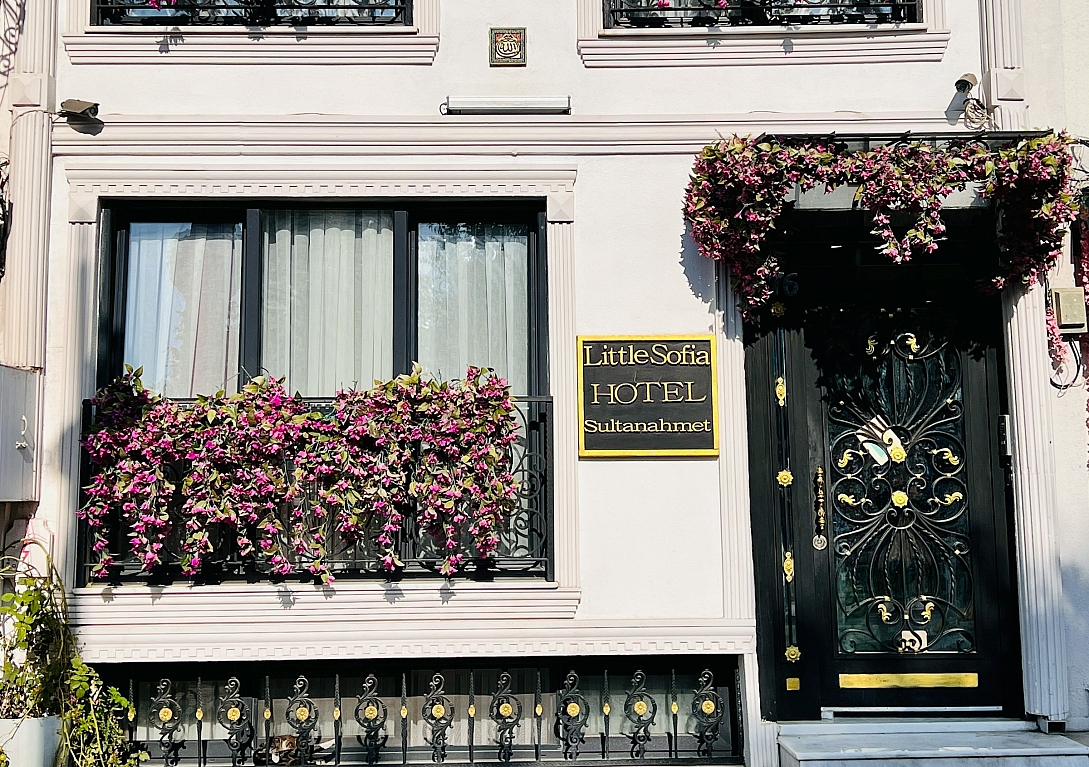
Making Reservations and Bookings At the Hotel
- Do you have a room available?: Boş oda var mı? (bohsh oh-dah vahr muh)
-
For how many nights?: Kaç gece için? (kahch geh-jeh eech-een)
-
Can I have a non-smoking room?: Sigara içilmeyen bir oda alabilir miyim? (see-gah-rah ee-cheel-meh-yehn beer oh-dah ah-lah-beel-eer mee-yeem)
-
I have a reservation: Bir rezervasyonum var (beer reh-zehr-vah-syoh-noom vahr)
-
What time is check-out?: Çıkış saati kaçta? (chuh-kuhsh sah-ah-tee kahch-tah)
-
Can I have an extra towel?: Fazladan havlu alabilir miyim? (faz-lah-dahn hahv-loo ah-lah-beel-eer mee-yeem)
-
I would like to book...: ...rezervasyon yapmak istiyorum (...reh-zehr-vah-syohn yahp-mahk ees-tee-yor-um)
-
Example: I would like to book a hotel room → Bir otel odası rezervasyon yapmak istiyorum (beer oh-tehl oh-dah-suh reh-zehr-vah-syohn yahp-mahk ees-tee-yor-um)
-
Directions
- Is it far from here?: Buradan uzak mı? (boo-rah-dahn oo-zahk muh)
-
Can you show me on the map?: Haritada gösterebilir misiniz? (hah-ree-tah-dah goh-steh-reh-beel-eer mee-see-neez)
-
How long will it take?: Ne kadar sürecek? (neh kah-dahr soo-reh-jek)
-
Is it near the ...?: ... yakın mı? (yah-kuhn muh)
-
Example: Is it near the museum? → Müze yakın mı? (moo-zeh yah-kuhn muh)
-
Conversational Phrases
- What do you recommend?: Ne tavsiye edersiniz? (neh tahv-see-yeh eh-dehr-see-neez)
-
Do you speak English?: İngilizce biliyor musunuz? (een-gee-leez-jeh bee-lee-yor moo-soo-nooz)
-
I don't understand.: Anlamıyorum. (ahn-lah-muh-yor-oom)
-
Can you repeat that?: Tekrar edebilir misiniz? (tehk-rahr eh-deh-bee-leer mee-see-neez)
-
Where can I find...?: ...nerede bulabilirim? (...neh-reh-deh boo-lah-bee-lee-reem)
-
Example: Where can I find a pharmacy? → Eczane nerede bulabilirim? (ej-zah-neh neh-reh-deh boo-lah-bee-lee-reem)
-
Essential Questions
-
What time is it?: Saat kaç? (sah-aht kahch)
-
When does it open/close?: Ne zaman açılıyor/kapanıyor? (neh zah-mahn ah-chuh-lee-yor/kah-pah-nee-yor)
-
Can you help me?: Bana yardım edebilir misiniz? (bah-nah yahr-duhm eh-deh-bee-leer mee-see-neez)
-
Where is the nearest ATM?: En yakın ATM nerede? (en yah-kuhn ah-teh-em neh-reh-deh)
By expanding your Turkish vocabulary and practising these phrases, you'll not only improve your communication skills but also deepen your connection with the local culture. Enjoy your travels in Türkiye and the enriching experiences that come with speaking the language!
